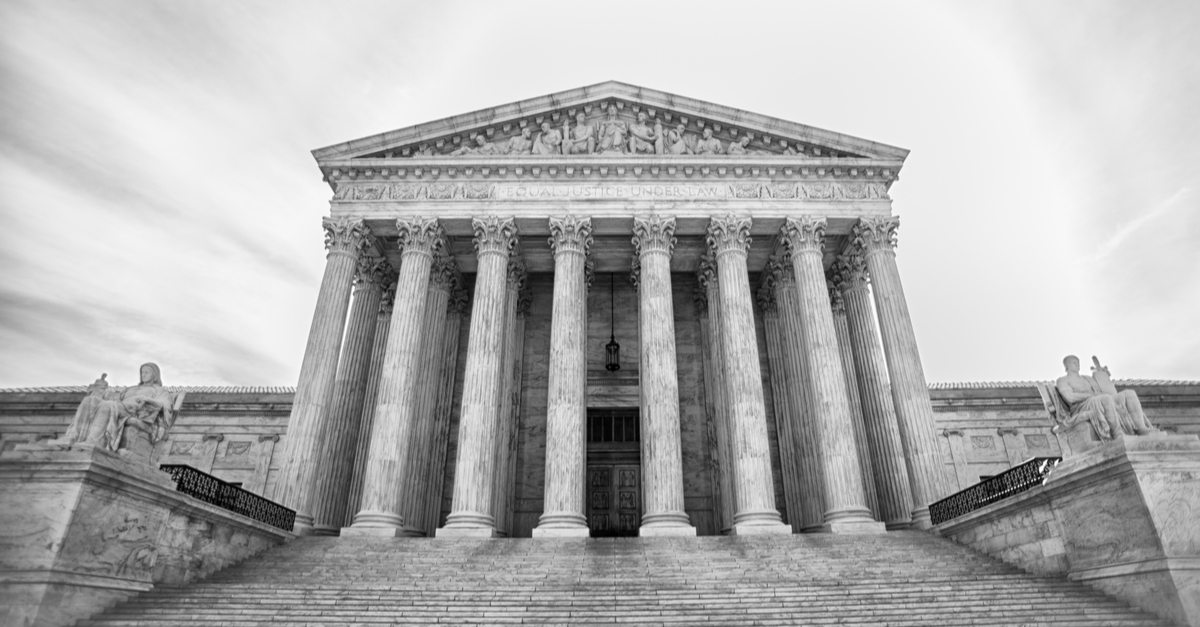


Get a free copy of Parental Rights & Education when you subscribe to our newsletter!

Supreme Court Justice Stephen Breyer, the eldest of the High Court’s jurists and anchor of the Court’s left bloc, is retiring.
President Biden has confirmed that he plans to appoint a black woman to the Supreme Court. Biden’s appointee, while inevitably liberal, will not alter the ideological demographics of the Court, since Breyer himself is a committed liberal jurist. The only impact Biden’s appointee will have is the prolonged liberal influence of that seat. Here are some names widely believed to be contenders for Breyer’s replacement:
Frontrunner: Ketanji Brown Jackson
Jackson currently serves on the U.S. Court of Appeals for the D.C. Circuit, arguably the second most powerful court in the land and, for many past and present justices, a launching pad to the Supremebiden Court. Chief Justice John Roberts, Justices Thomas and Kavanaugh, and the late Justice Ginsburg all served as judges on the D.C. Circuit prior to their appointment to the Supreme Court.
While Jackson has no notable record on abortion, religious liberty, or free speech, her confirmation to the D.C. Circuit received praise from NARAL Pro-Choice America:
“We applaud the Senate’s confirmation of Judge Ketanji Brown Jackson. Her confirmation to the D.C. Circuit brings us one step closer to a judiciary that better represents the diversity of our nation and one that will uphold our most fundamental rights and freedoms — including reproductive freedom.”
Notable cases she’s influenced include an opinion ordering Trump administration documents to be disclosed to the January 6 committee.
Other potential nominees are California Supreme Court Justice Leondra Kruger and South Carolina U.S. District Court Judge J. Michelle Childs, who have little-to-no influential records of voting on major polarized matters. If the Biden administration is seeking a second run, they would be foolish to appoint a justice who didn’t have a record of strong liberal positions, and any appointee without a record would be wise to publicly declare their positions in the confirmation process.
Breyer is likely to retire long enough before the midterms to avoid a potential lame-duck session expiring. In the event Republicans gain control of the Senate, replacing Breyer could mean trouble for the Biden administration. Although even with a small GOP majority, a Biden pick for SCOTUS could be successful given the likes of Republican Sens. Susan Collins, Lisa Murkowski, and Lindsey Graham. All three senators voted to confirm Ketanji Brown Jackson to her current post on the D.C. Circuit. Collins and Graham also voted to confirm current liberal Justices Sotomayor and Kagan to the Supreme Court.
It is unclear, however, if Graham will vote to confirm a Biden appointee. Even with his confirmation record with Sotomayor, Kagan, and Jackson, a response he gave to Breyer’s retirement suggests that he will not vote in favor of a Biden appointee.
“If all Democrats hang together — which I expect they will — they have the power to replace Justice Breyer in 2022 without one Republican vote in support. Elections have consequences, and that is most evident when it comes to fulfilling vacancies on the Supreme Court.”
Senate Majority Leader Chuck Schumer, D-N.Y., likely invigorated by the dramatic confirmation of Justice Amy Coney Barrett, is paving the way for an expedited confirmation process:
“President Biden’s nominee will receive a prompt hearing in the Senate Judiciary Committe, and will be considered and confirmed by the full United States Senate with all deliberate speed.,” he stated.

Isolating Supreme Court nominee qualifications to skin color isolates all other races, and that’s not a good look for any party. Martin Luther King Jr. would probably agree. His dream that people “not be judged by the color of their skin but by the content of their character” really collides with the decision to disqualify hundreds of candidates, including minorities, to the High Court. Maybe ensuring the appointment of a black Supreme Court justice would be understandable if it were nearer MLK’s 1963 speech and a president was trying to expedite an anti-racist trajectory. It’s still inconsistent with MLK’s speech, but at least it’s more understandable.
But nearly 60 years post MLK’s speech? Appointing a black justice (or any race) exclusively in 2022 is nothing more than virtue signaling. We’ve had a black President, several black cabinet secretaries, black national security advisors, numerous black members of Congress, black Supreme Court justices, and a current black female Vice President.
No race should be a disqualifier. In what world is it not racist to say, “I’m not going to appoint you because you’re Hispanic, Asian, white, etc.?”
More virtue signaling came from Kimberly Tignor of the “She Will Rise” campaign for a black woman on the Supreme Court:
“Appointing a Black woman to the Supreme Court is the next and necessary step towards a truer form of democracy and ensuring that our unique experiences and perspectives are represented.”
Since when is it a Supreme Court Justice’s job to entertain the “unique experiences and perspectives” of the citizenry? It isn’t their job, it never has been their job, it never will be their job. The only perspective Supreme Court justices are to rule through is the perspective of the U.S. Constitution, not the perspectives of the citizenry.
Christian conservative news and issues that matter. Curated just for you!
